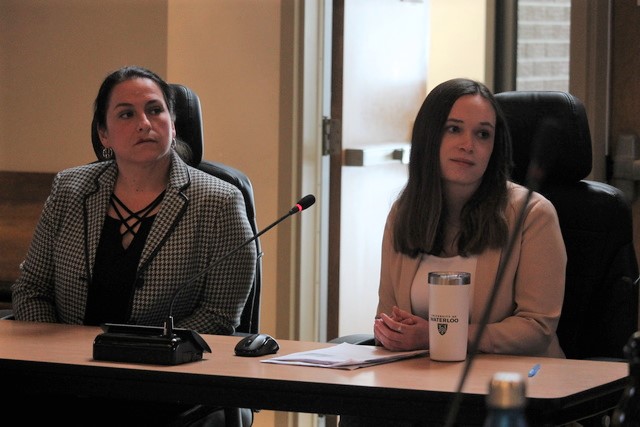The health unit says there is no need to panic in the wake of COVID-19 being declared a worldwide pandemic.
The Haliburton, Kawartha, Pine Ridge (HKPR) District Health Unit said in a March 11 press release that there are still no local cases of the infectious respiratory illness and it is preparing in the event there are. The World Health Organization declared COVID-19, also known as the coronavirus, a pandemic March 11, a classification based on the spread of the disease rather than its severity.
“While we may eventually see cases in our area, we have been working with our hospitals and health care partners to ensure we have supports in place to protect our residents and contain the spread of the illness when it arrives,” medical officer of health Lynn Noseworthy said.
Those supports include providing nurses with testing information and following up with anyone tested for COVID-19.
“The majority of people who test positive for COVID-19 are experiencing mild symptoms and are recovering fully,” added Noseworthy. “We know that many people are experiencing heightened anxiety about COVID-19 and I want to reassure them. This declaration should not increase those fears.”
Other organizations are also preparing for the spread of illness.
The province has announced all publicly-funded schools will close for an additional two weeks after March break due to the COVID-19 pandemic.
“We recognize the significant impact this decision will have on families, students, schools, as well as the broader community, but this precaution is necessary to keep people safe,” Premier Doug Ford, Minister of Health Christine Elliott and Minister of Education Stephen Lecce said in a joint statement.
Schools will now be closed from March 14 to April 5.
The County of Haliburton is planning to convene the County Emergency Control Group – the group of officials that provides direction for emergency management operations – next week to prepare for COVID-19.
Chief and director of paramedic services Tim Waite discussed the illness during the March 11 committee of the whole meeting. He said the department has stocked up on masks.
“It’s important we are ramping up,” Waite said. “Just so we are prepared, and the community knows we are prepared in case.”
He also identified March break as a concern for the disease spreading.
“Everybody’s going to be travelling. Where are they travelling to?” Waite said.
Trillium Lakelands District School Board (TLDSB) said March 12 it is cancelling all out-of-district school trips in response to COVID-19. It also provided advice for anyone travelling during the break, including monitoring health for 14 days upon return and contacting their local health unit immediately if flu-like symptoms develop.
TLDSB also said it is increasing surface cleaning in schools and providing more disinfectant wipes and hand sanitizer.
“Trillium Lakelands District School Board (TLDSB) continues to monitor the increasing number of cases of novel coronavirus (COVID-19) in Ontario and around the world,” the board said.
The province also announced March 12 it will establish additional assessment centres in the coming weeks, will launch an online self-assessment tool in the coming days and is launching a public education campaign.
The health unit also offered other tips, such as washing hands frequently for at least 20 seconds, avoid touching the face and staying home if you or a family member are ill.
The health unit also said it is working with partners to develop strategies on screening additional people to reduce the strain on emergency departments.
More information is available by contacting the Health Unit at 1-866-888-4577, ext. 5020, or visiting www.hkpr.on.ca. After hours, people can call Telehealth Ontario for medical advice toll-free at 1-866-797-0000.










